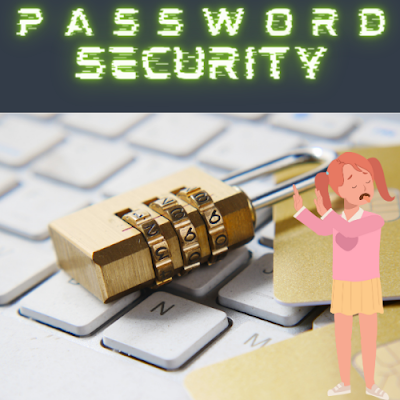Importance of Strong Passwords: Protecting Your Digital Assets
At this point, you may be wondering, why do I even need a strong password anyway? The truth is that even though most websites are secure, there's always a small chance someone may try to access or steal your information. This is commonly known as hacking. A strong password is one of the best ways to defend your accounts and private information from hackers.
Tips for creating strong passwords
A strong password is one that's easy for you to remember but difficult for others to guess. Let's take a look at some of the most important things to consider when creating a password.
- Never use personal information such as your name, birthday, username, or email address. This type of information is often publicly available, which makes it easier for someone to guess your password.
- Use a longer password. Your password should be at least eight characters long, although, for extra security, it should be even longer.
- Don't use the same password for each account. If someone discovers your password for one account, all of your other accounts will be vulnerable.
- Try to include numbers, symbols, and both uppercase and lowercase letters.
- Avoid using words that can be found in the dictionary. For example,
swimming1 would be a weak password. - Random passwords are the strongest. If you're having trouble creating one, you can use a password generator instead.
Common password mistakes
Some of the most commonly used passwords are based on family names, hobbies, or just a simple pattern. While these types of passwords are easy to remember, they're also some of the least secure. Let's take a look at some of the most common password mistakes and how to fix them.
Problem: This password uses too much personal information, along with common words that could be found in the dictionary.
Solution: A stronger version of this password would use symbols, uppercase letters, and a more random order. And rather than using family names, we could combine a character from a movie with a type of food.
For example:
Chewbacca and pizza could become chEwbAccAp!ZZa.
Problem: At only five characters, this password is way too short. It also includes part of her address, which is publicly available information.
Solution: A stronger version of this password would be much longer, ideally more than 10 characters. We could also substitute a nearby street name instead of her current address.
For example:
Pemberly Ave could become p3MberLY%Av.
Problem: While patterns like this are easy to remember, they're also some of the first things a hacker might guess when attempting to access your account.
Solution: Remember that random passwords are much stronger than simple patterns. If you're having trouble creating a new password, try using a password generator instead.
Here's an example of a generated password: #eV$pIg&qf.
If you use a password generator, you may also want to create a mnemonic device to make the password easier to remember.
For example:
H=jNp2# could be remembered as HARRY = jessica NORTH paris 2 #.
This may still feel pretty random, but with a bit of practice, it becomes relatively easy to memorize.
Using Password Managers
Instead of jotting down your passwords on paper where they could be discovered, opt for a password manager to securely store them online. Password managers offer the convenience of automatically entering your passwords on various websites, eliminating the need to remember lengthy combinations. Popular password manager options include LastPass, 1Password, and Google Chrome's built-in password manager.
Conclusion: Safeguard Your Digital Assets with Strong Passwords
In conclusion, the importance of strong passwords cannot be overstated when it comes to protecting your valuable digital assets. While most websites implement security measures, the risk of unauthorized access and data theft is ever-present. By employing robust passwords, you significantly enhance your accounts' defense against hackers and safeguard your private information.
To create strong passwords, remember these key tips:
- Avoid using personal information that can be easily guessed or obtained publicly.
- Opt for longer passwords, ideally exceeding eight characters for added security.
- Never reuse the same password for multiple accounts to prevent widespread vulnerability.
- Incorporate a combination of numbers, symbols, uppercase and lowercase letters for complexity.
- Avoid using common dictionary words as they are easily cracked.
- Consider using password generators for truly random and strong passwords.
Additionally, be aware of common password mistakes such as relying on personal information or predictable patterns. By making conscious efforts to avoid these pitfalls, you can further fortify your password security.
Lastly, utilizing password managers provides a secure solution for storing and managing your passwords. These tools eliminate the need to write passwords on vulnerable mediums like paper and offer the convenience of automatically entering passwords on various websites. Examples of popular password managers include LastPass, 1Password, and Google Chrome's built-in password manager.
By following these best practices and leveraging password managers, you can effectively protect your digital assets and maintain a robust defense against unauthorized access. Prioritize the security of your online accounts and take control of your data's safety.
Contact Us:
If you have any inquiries or would like to discuss your cyber security needs, please feel free to contact us. Our team is ready to assist you.







